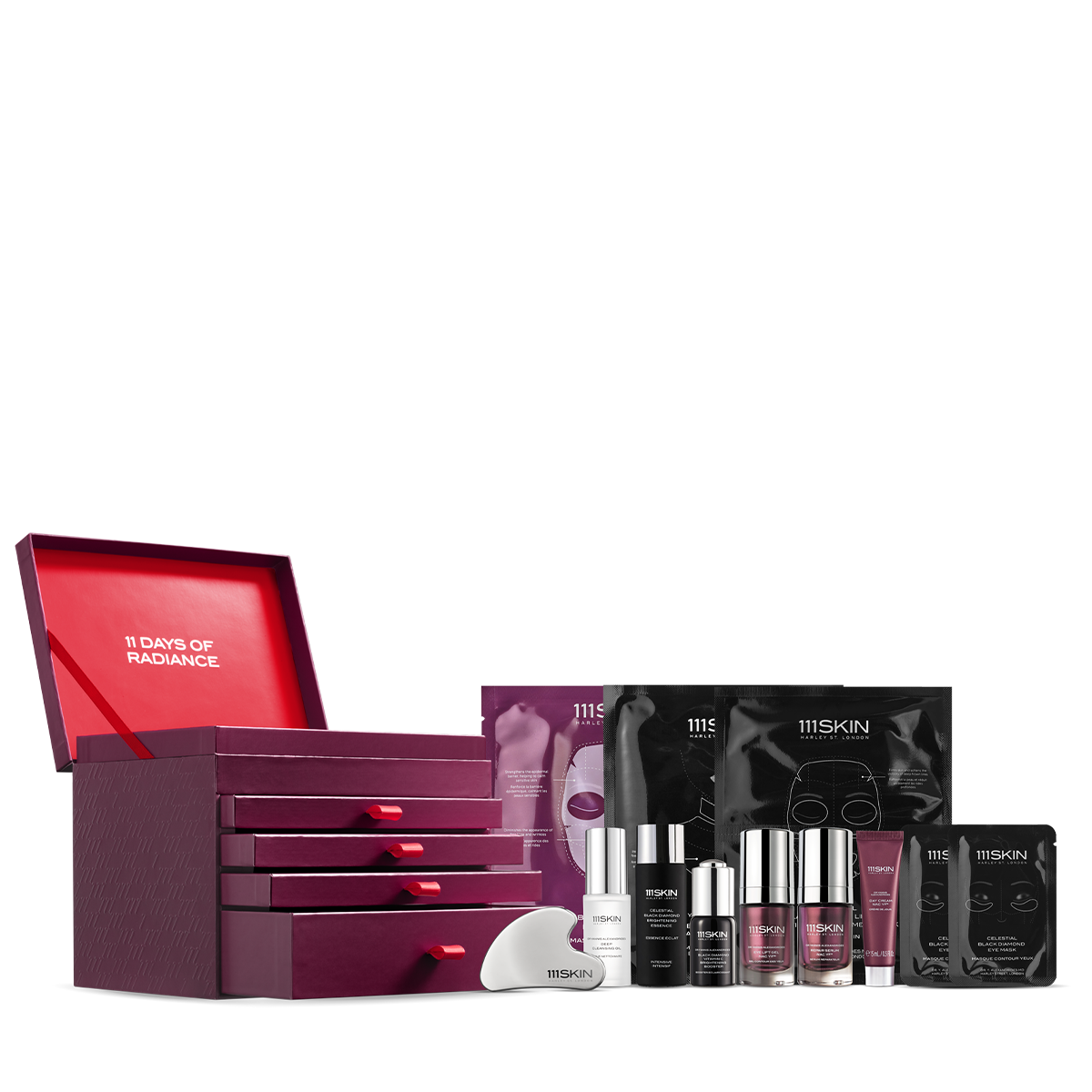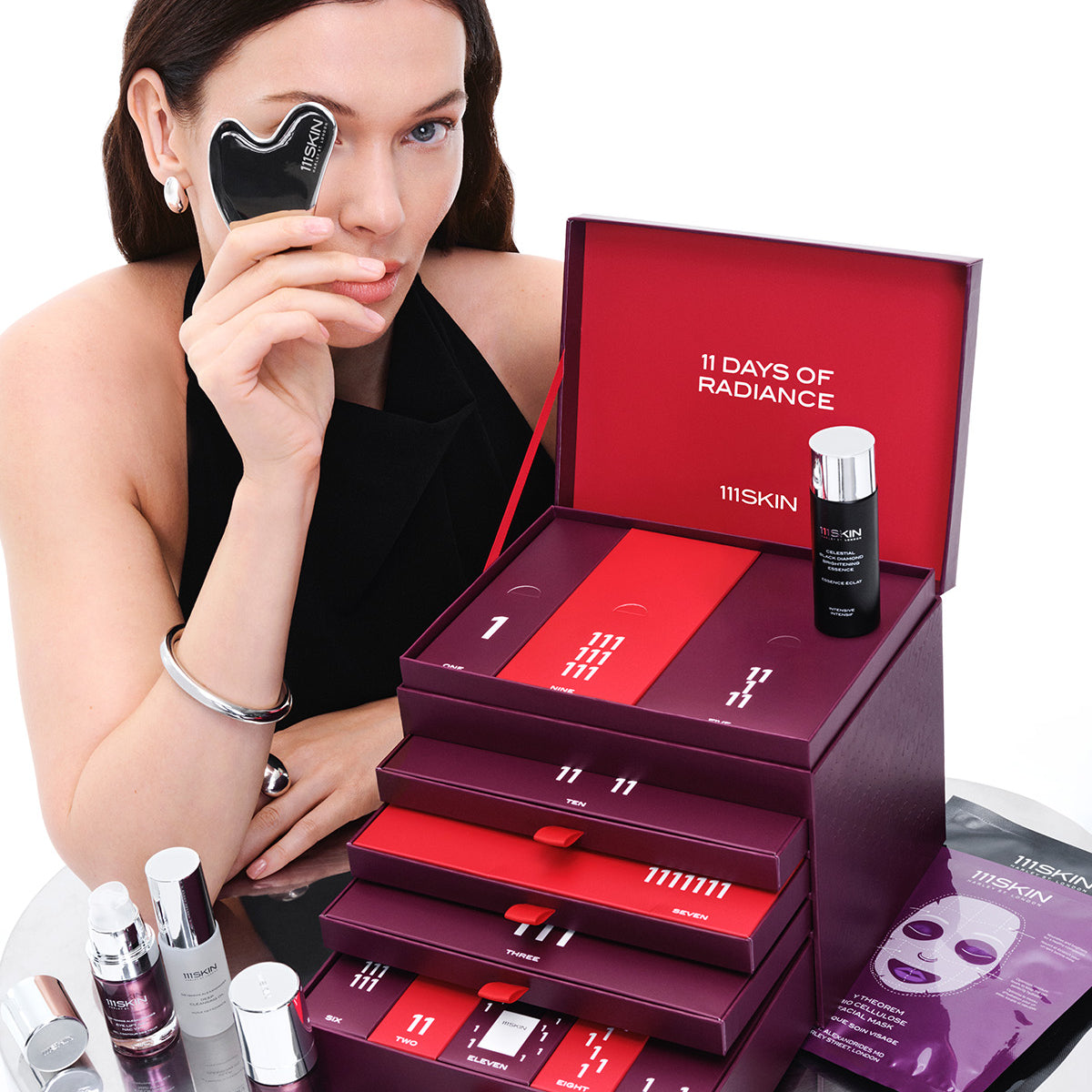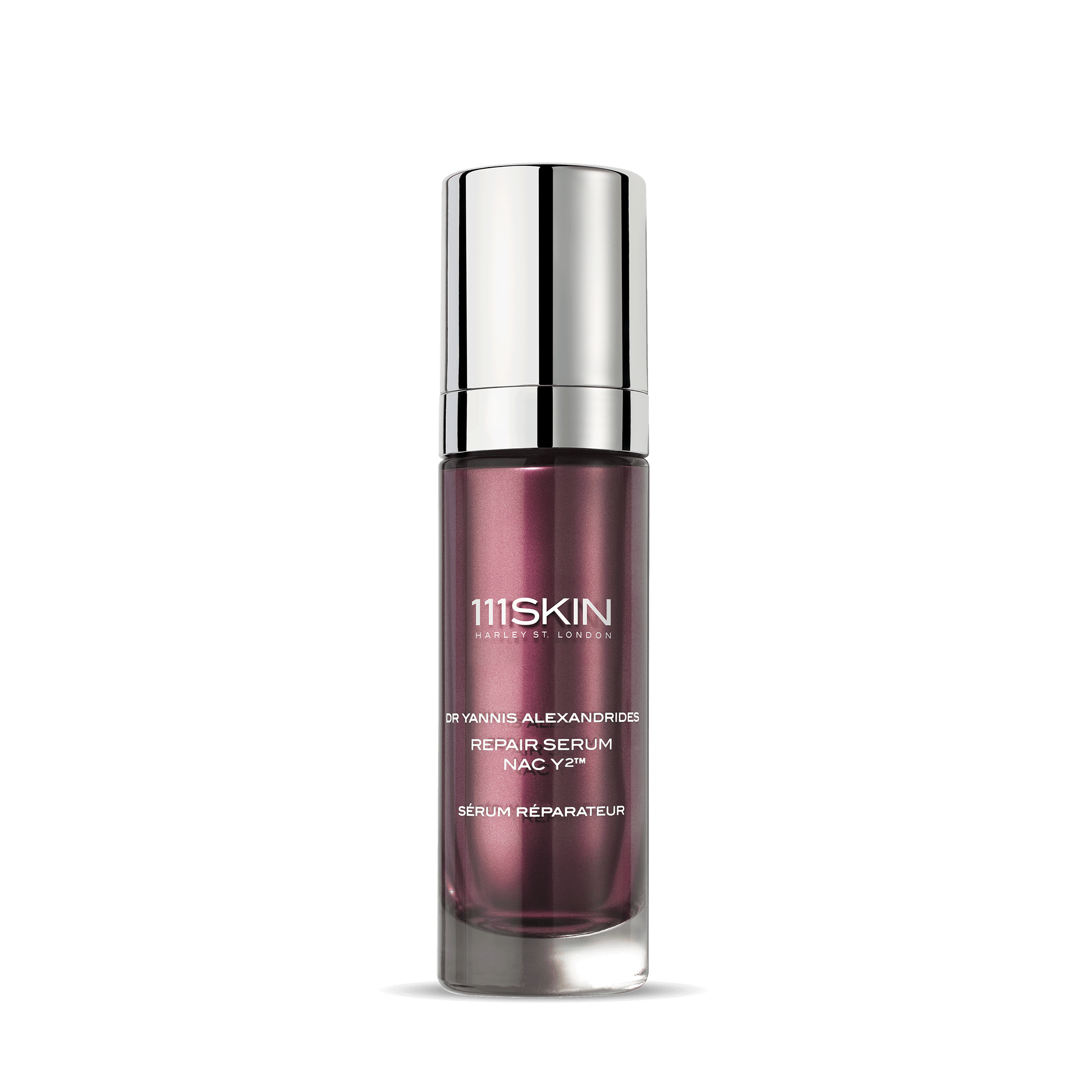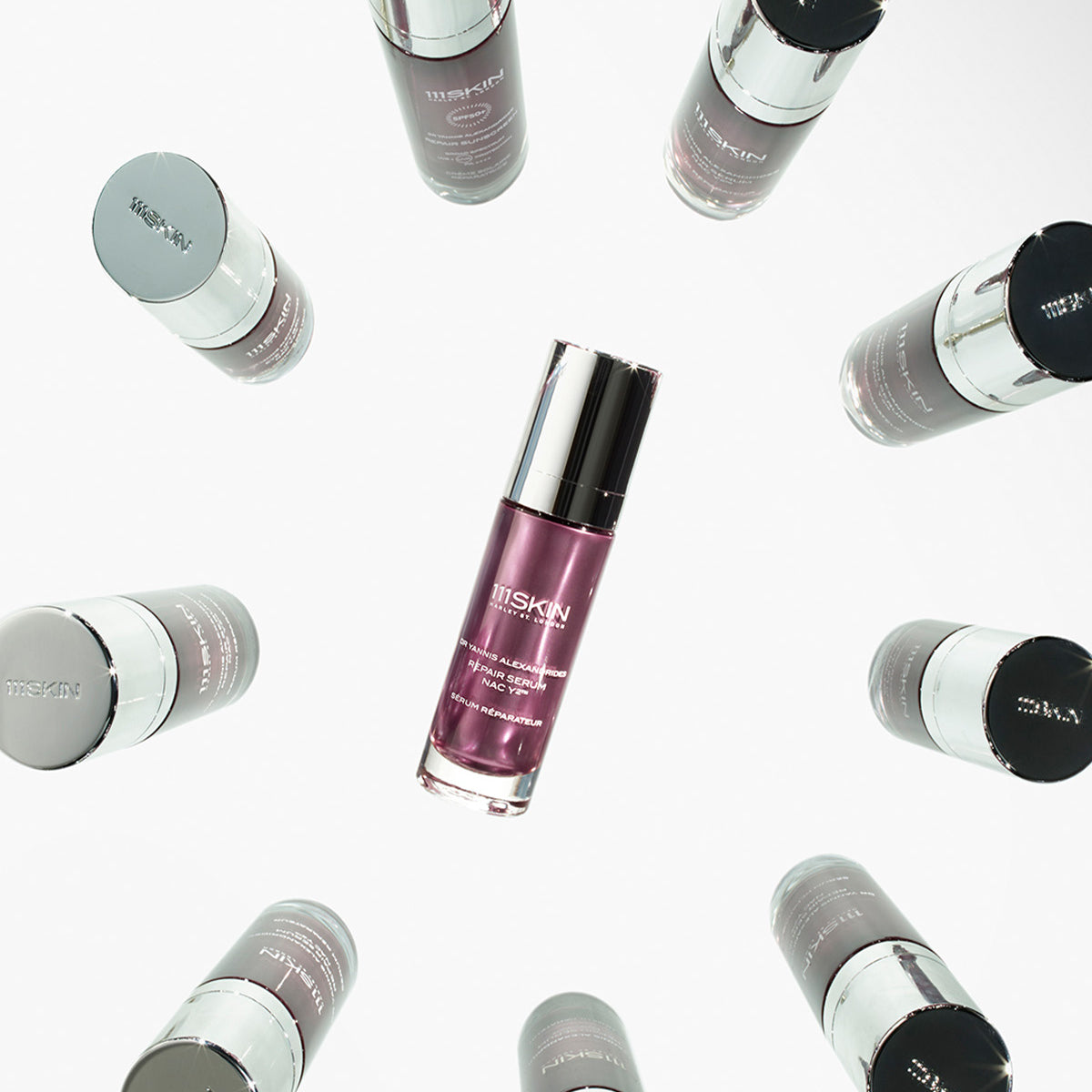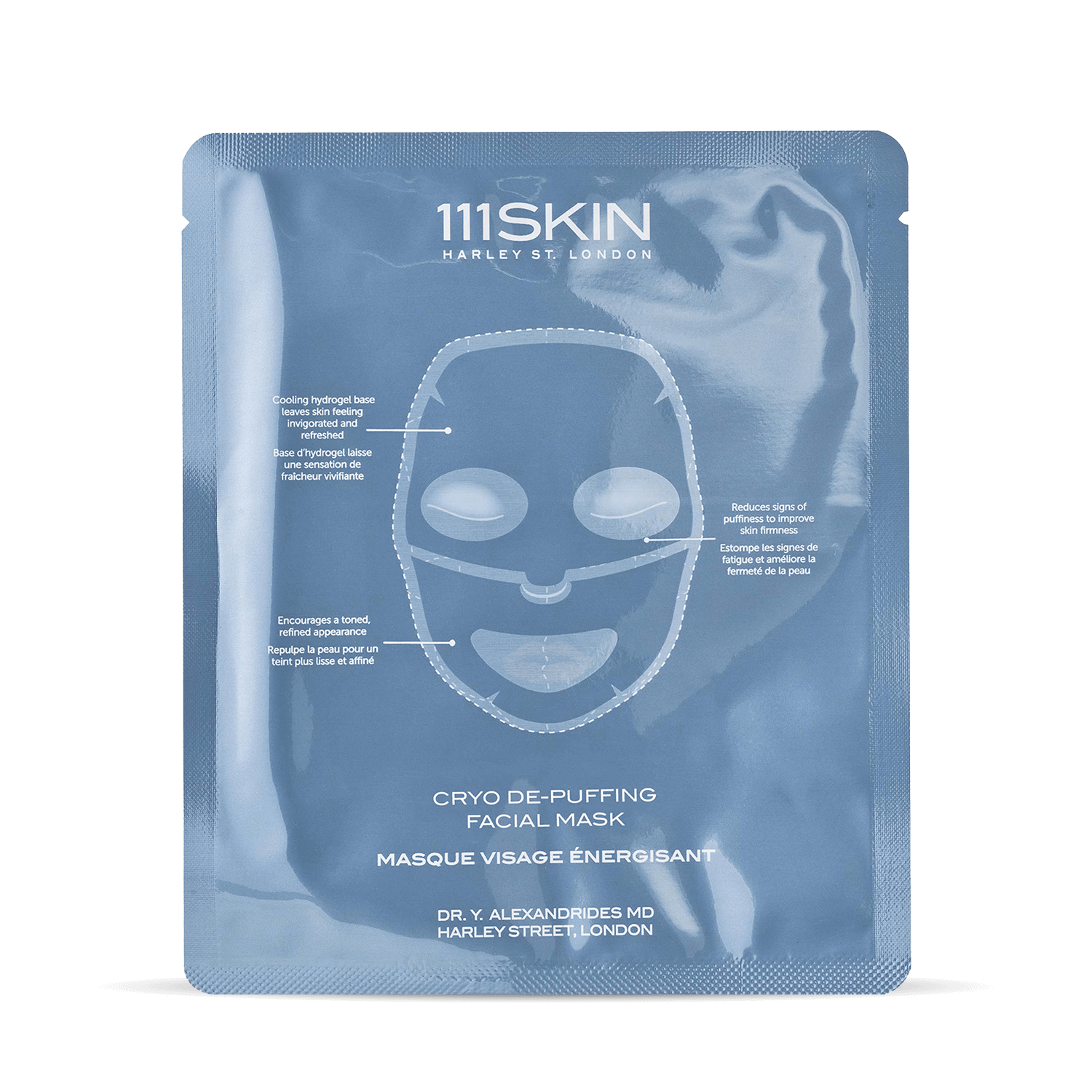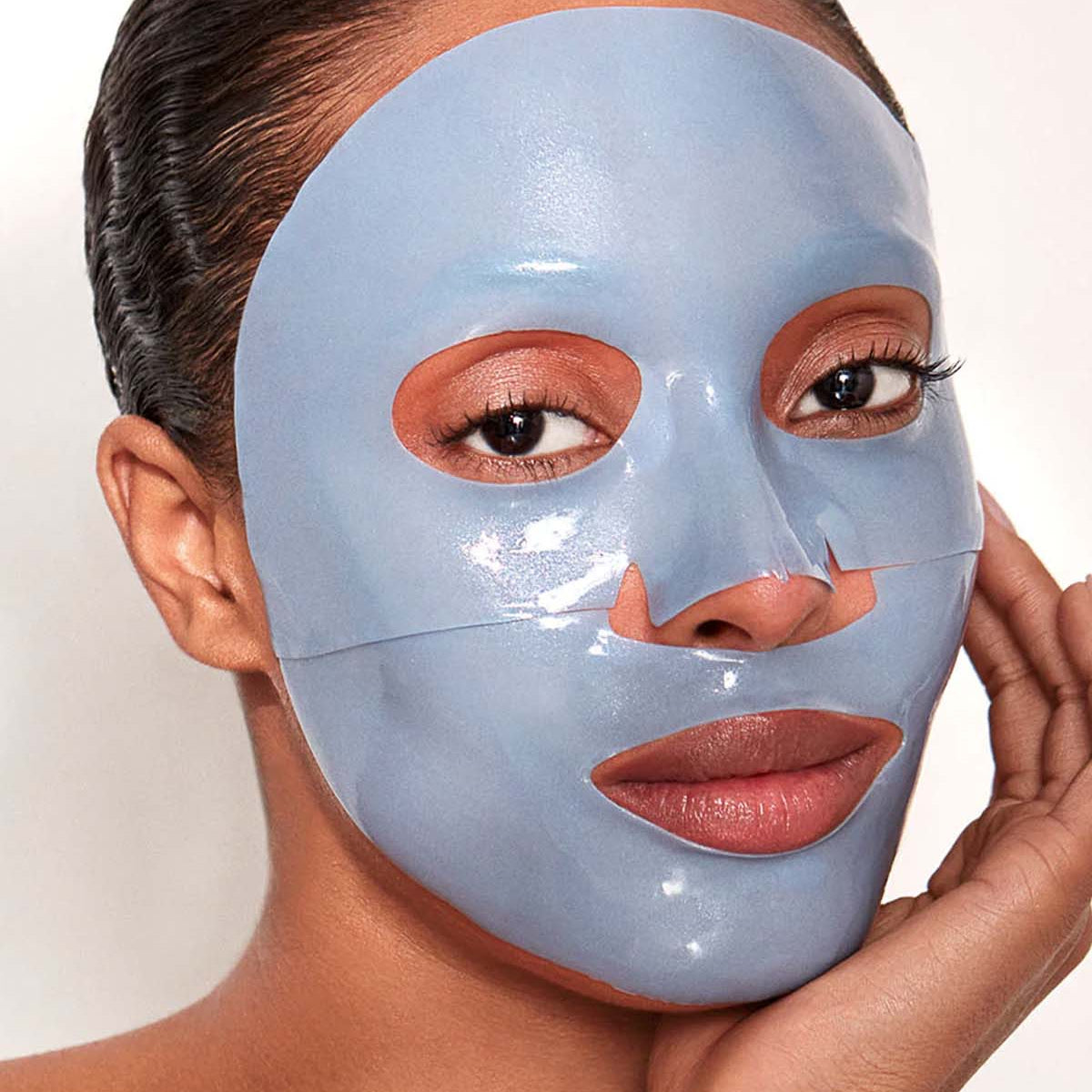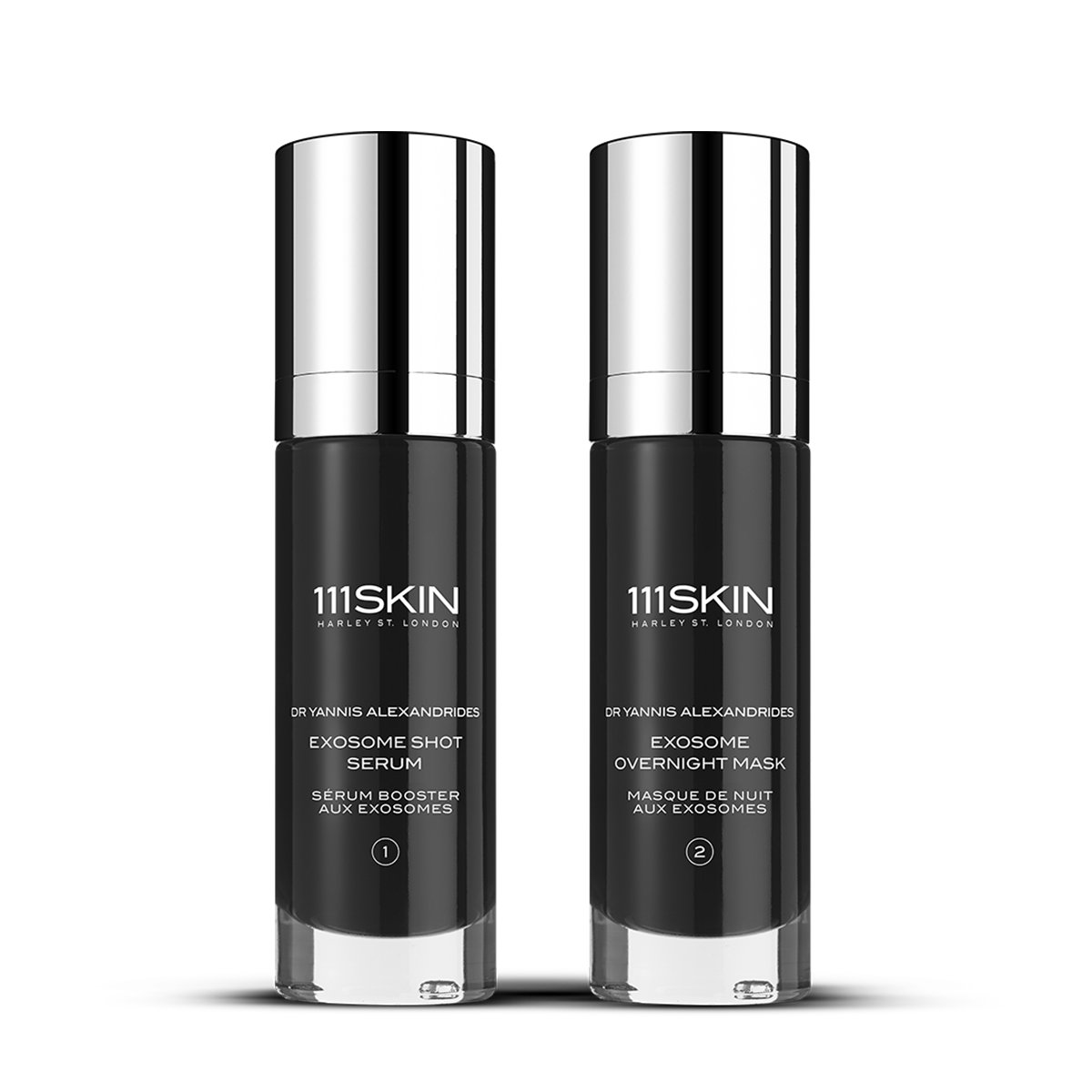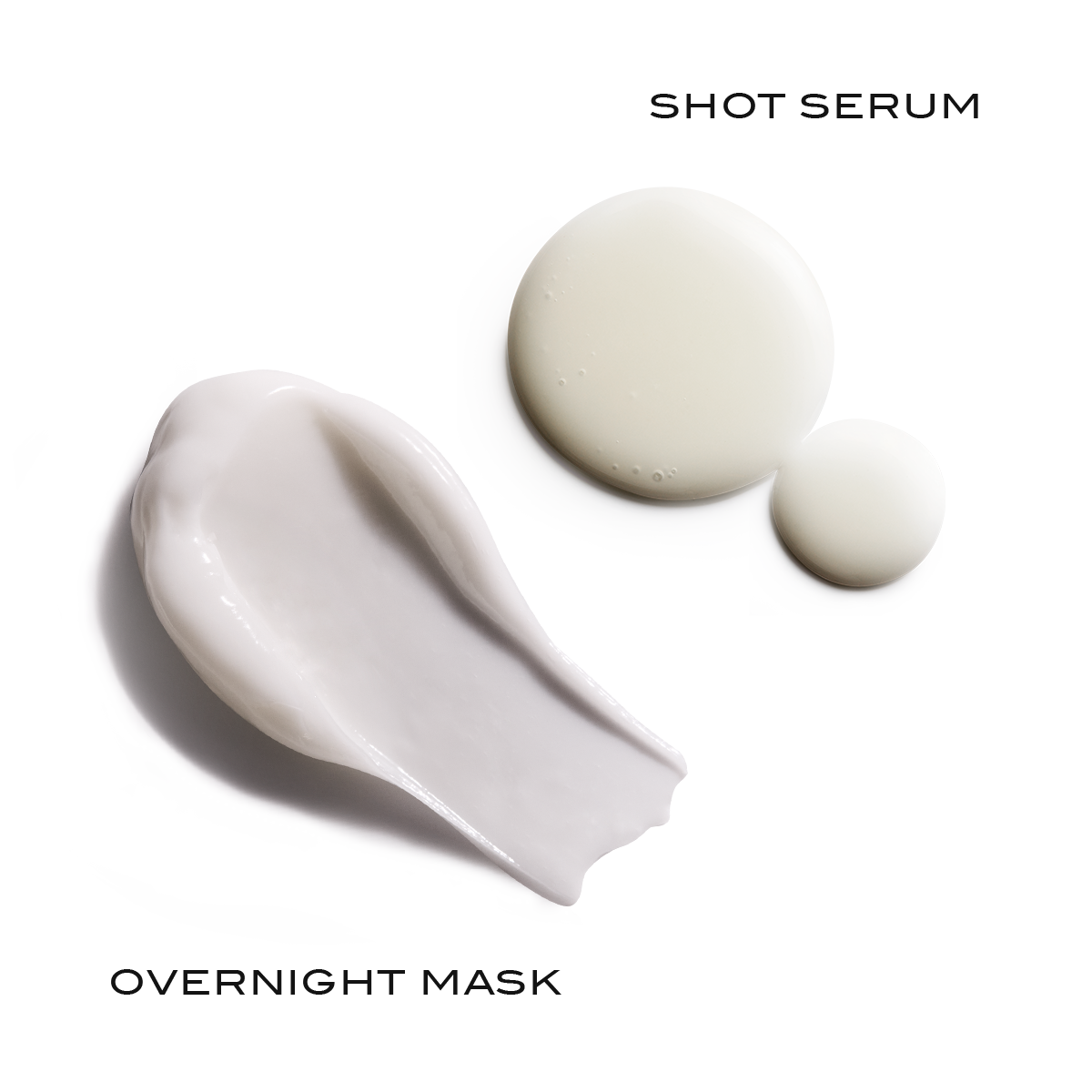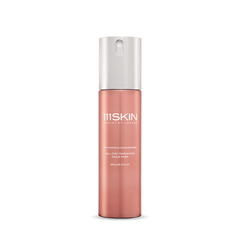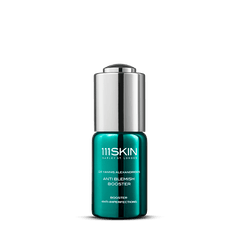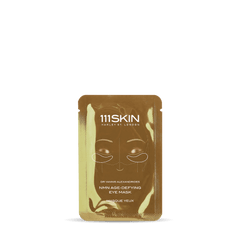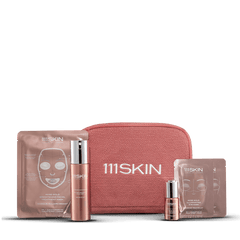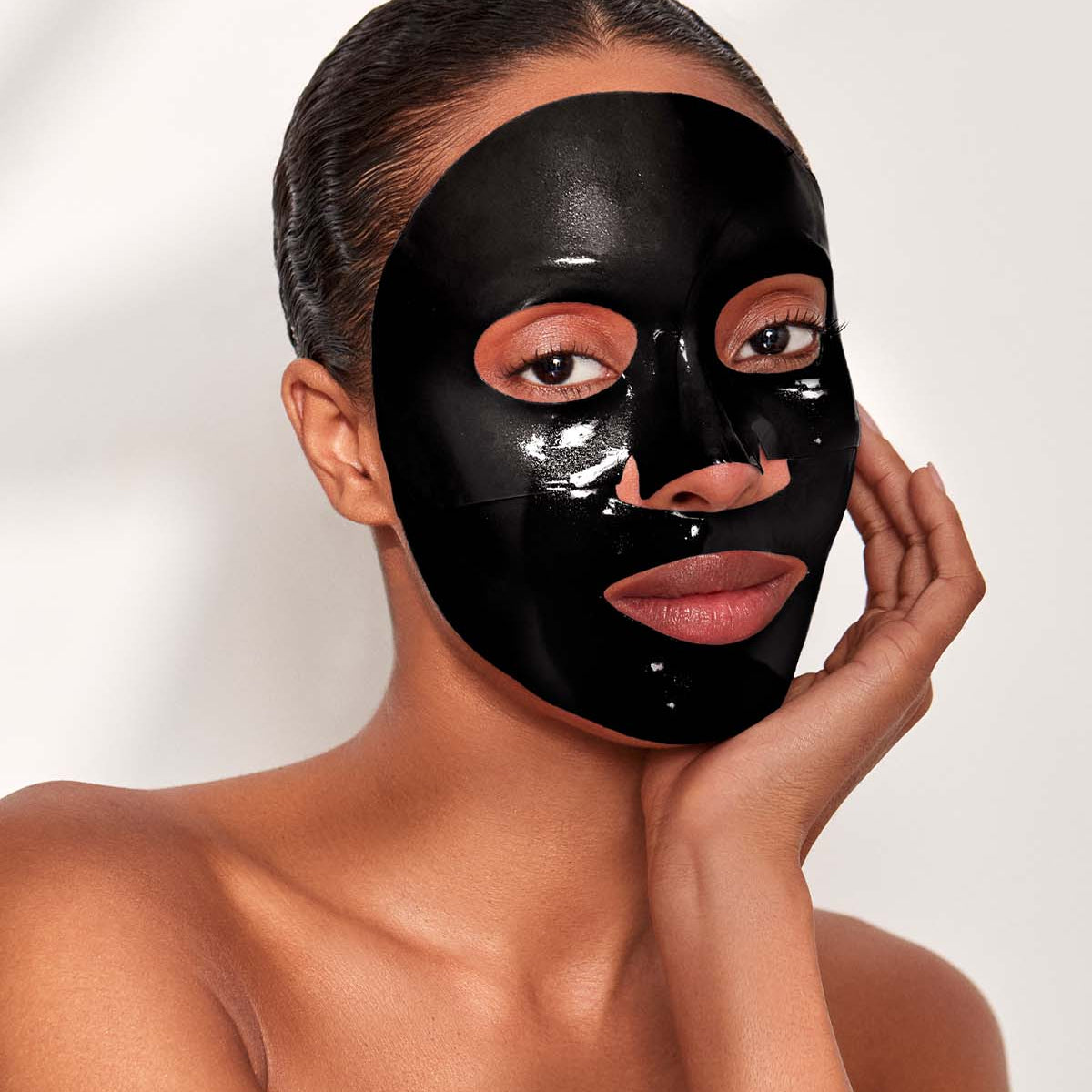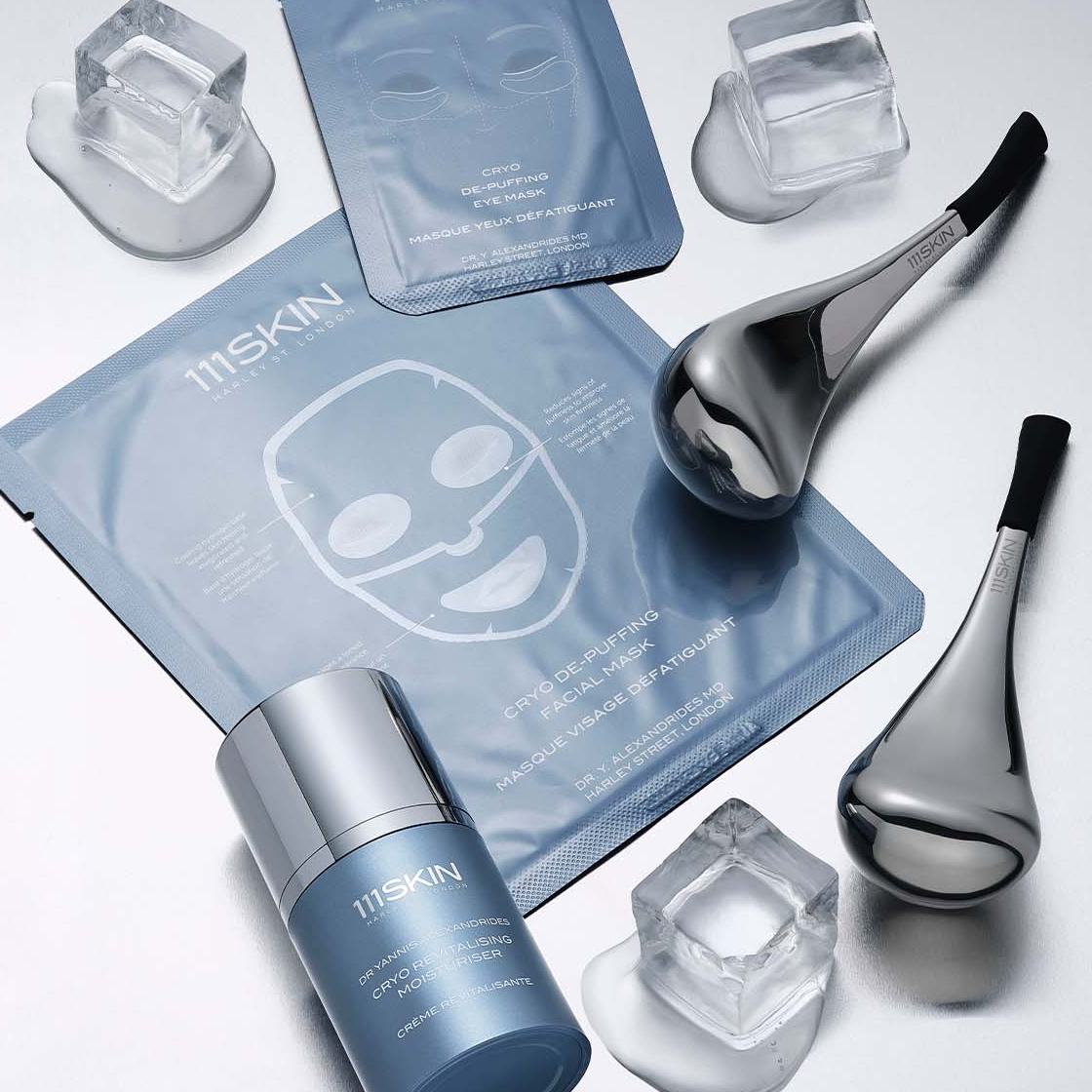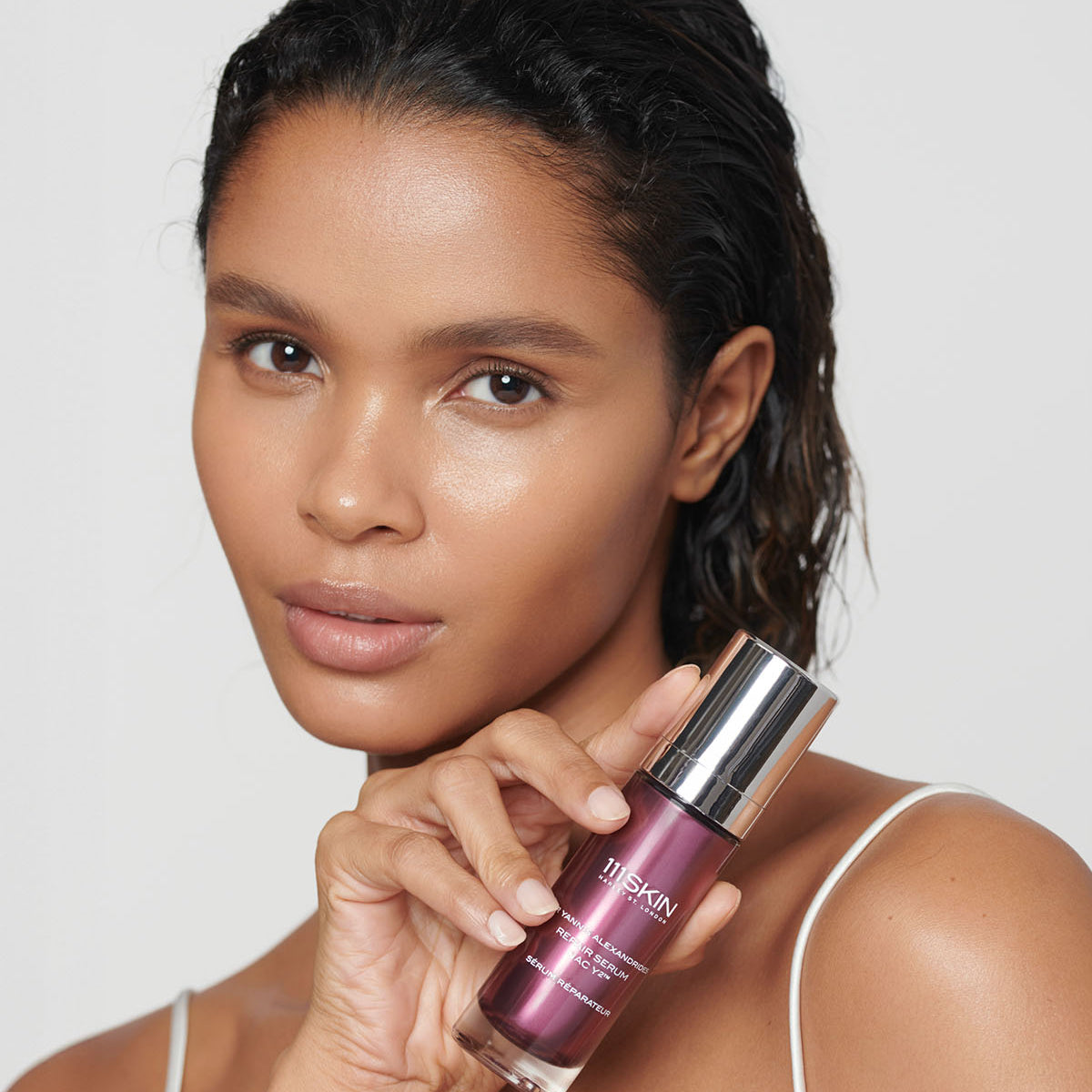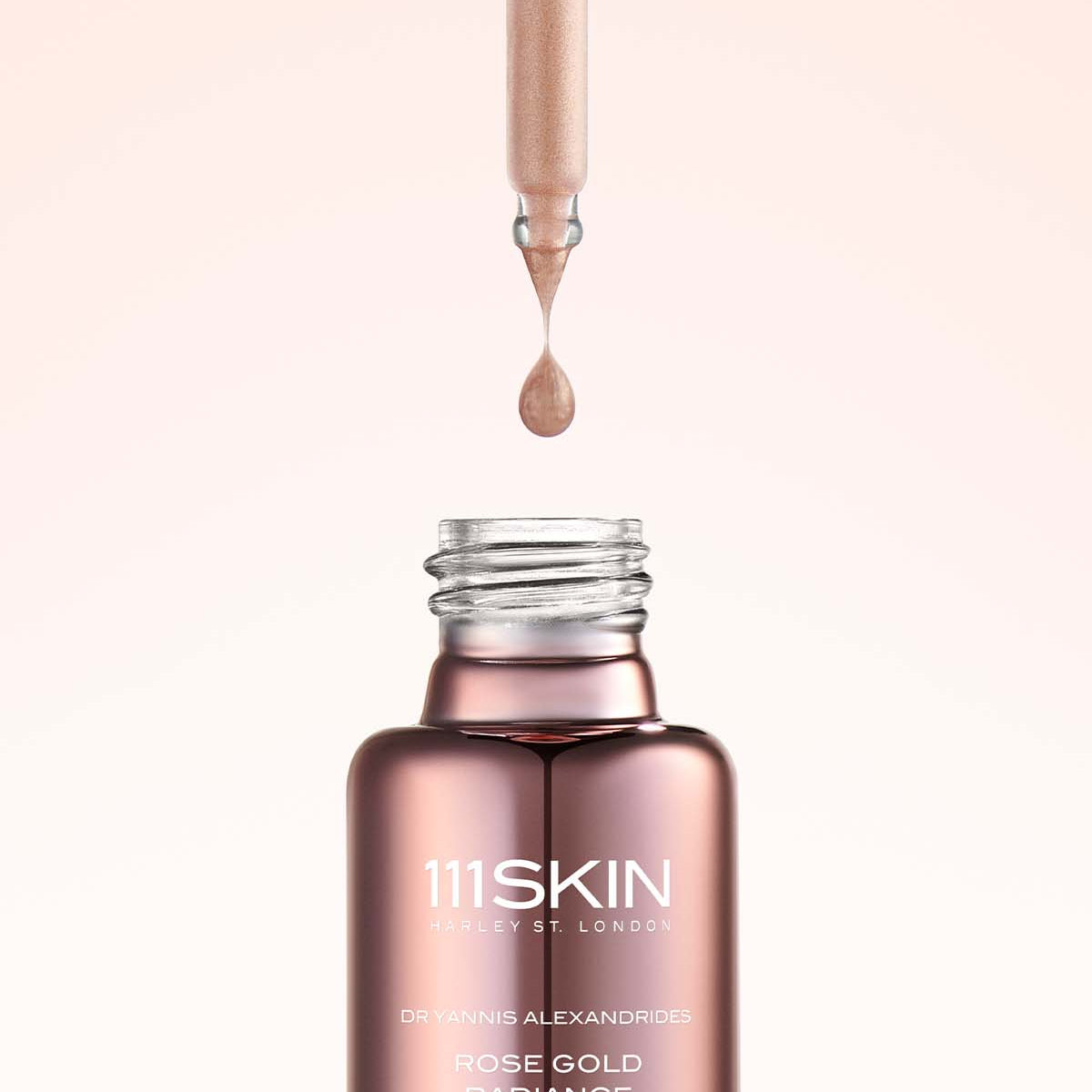4 min to read
Explore This Article:
Hyperpigmentation is a skin concern that many individuals face, whether it’s caused by sun damage, hormonal changes, or post-inflammatory responses like acne. While dark spots and uneven skin tone can be frustrating, the good news is that a variety of professional treatments and at-home skincare solutions can help address these concerns effectively. In this article, we explore the best ingredients for hyperpigmentation, the importance of sunscreen, and the difference between in-clinic and at-home solutions.
Understanding Hyperpigmentation and Its Triggers
For a detailed explanation of what hyperpigmentation is, its types, and primary causes, refer to our guide on Understanding Hyperpigmentation and Its Causes. Now we will focus on the treatments and ingredients that can effectively address this common skin concern.
Hyperpigmentation refers to areas of the skin that become darker than the surrounding skin due to excess melanin production. This condition can manifest as:
- Sun spots (solar lentigines)
- Melasma (hormonal pigmentation)
- Post-inflammatory hyperpigmentation (PIH) caused by acne, injury, or eczema
Triggers include prolonged UV exposure, hormonal imbalances, and inflammation. Addressing these factors with targeted treatments and preventative measures can make a visible difference.
In-Clinic Treatments vs. At-Home Solutions
Professional In-Clinic Treatments
Professional treatments are ideal for stubborn hyperpigmentation or cases requiring faster results. Some popular in-clinic options include:
- Chemical Peels: Treatments like glycolic acid or TCA peels exfoliate the skin, removing darkened layers of the epidermis and encouraging cell turnover.
- Laser Therapy: Lasers target pigmentation at deeper levels of the skin for precise results.
- Microneedling: This procedure stimulates collagen production while breaking up pigment clusters in the skin.
- Red Light Therapy: Helps calm inflammation and improve skin tone over time.
These options often require consultation with a dermatologist and may involve downtime, but they offer significant improvement for severe cases of hyperpigmentation.
Discover treatments we have available a 111Harley St.

At-Home Skincare Solutions
At-home treatments are more accessible and, when used consistently, can deliver excellent results. The best at-home solutions include targeted serums, creams, and sunscreens containing proven ingredients to fade dark spots.
The Best Ingredients for Treating Hyperpigmentation
When it comes to treating hyperpigmentation, choosing products with the right active ingredients is key. Here are the most effective ingredients:
1. Vitamin C
A powerhouse antioxidant, Vitamin C brightens skin, evens tone, and reduces the appearance of dark spots by inhibiting melanin production. It also protects against oxidative damage caused by UV exposure.
- Best for: Daily use as a morning serum.
- Tip: Pair Vitamin C with a high broad-spectrum SPF 50+ for enhanced protection and results.
2. Azelaic Acid
Azelaic acid has anti-inflammatory and skin-lightening properties, making it ideal for post-inflammatory hyperpigmentation (PIH) and hormonal pigmentation.
- Best for: Sensitive skin and acne-prone individuals.
- Results: Noticeable improvements in pigmentation and skin clarity with consistent use alongside a broad-spectrum SPF 50+.

3. Retinoids (Tretinoin and Retinol)
Retinoids promote cell turnover, fading hyperpigmentation while improving overall skin texture. Tretinoin, a prescription-strength retinoid, delivers faster results compared to over-the-counter retinol.
- Best for: Evening use in a consistent routine.
- Tip: Retinoids increase the skin’s sensitivity to UV rays, so pair them with a broad-spectrum SPF50+ during the day.
4. Niacinamide
This form of Vitamin B3 reduces melanin transfer within the skin, helping to lighten dark spots and even out skin tone. Niacinamide also strengthens the skin barrier and calms inflammation.
- Best for: All skin types, including sensitive skin.
- Bonus: Works well in combination with other actives, like Vitamin C alongside a broad-spectrum SPF50+.
5. Glycolic Acid
As an alpha-hydroxy acid (AHA), glycolic acid exfoliates the skin’s surface, removing dead cells and faded pigment. Regular use accelerates cell turnover, revealing brighter, even-toned skin.
- Best for: Chemical exfoliation in serums or peels. Ensure a broad-spectrum SPF50+ is used alongside Glycolic Acid.
- Tip: Introduce glycolic acid gradually to avoid irritation.

STILL NEED HELP?
Take our short quiz to unlock your recommended hyperpigmentation routine based on your skin characteristics.
The Importance of Sunscreen for Hyperpigmentation
How to Choose the Best Sunscreen:
- Opt for a mineral or chemical sunscreen based on your skin type.
- Ensure the SPF you choose is labeled as "broad spectrum".
- Look for formulas with additional ingredients like niacinamide or Vitamin C for added benefits.
- Reapply every two hours, especially when outdoors.
Lifestyle Factors That Help with Hyperpigmentation
Apart from treatments and ingredients, certain lifestyle habits can help improve hyperpigmentation:
- Avoid Picking at Your Skin: Picking at acne or scabs can worsen PIH.
- Hydrate and Nourish: Healthy, hydrated skin heals faster and is less prone to pigmentation.
- Maintain Consistency: Whether using Vitamin C, retinoids, or chemical exfoliants, consistency is key to achieving results over time. The use of a sunscreen SPF 50+ daily is key to preventing hyperpigmentation.

FAQs About Hyperpigmentation Treatments
What is the best treatment for hyperpigmentation?
The best treatment depends on the severity of hyperpigmentation. For mild cases, ingredients like Vitamin C, retinoids, and azelaic acid are effective. For stubborn pigmentation, professional treatments like chemical peels or laser therapy may be needed.
Does tretinoin help with hyperpigmentation?
Yes, tretinoin is a prescription-strength retinoid that accelerates cell turnover, reducing the appearance of pigmentation over time.
How long does it take for hyperpigmentation to fade?
Results vary, but with consistent use of effective treatments and sunscreen, improvements can be seen in 4-8 weeks. Severe cases may take several months.
What ingredients help with hyperpigmentation?
Vitamin C, azelaic acid, retinoids, niacinamide, and glycolic acid are some of the best ingredients for reducing hyperpigmentation.
Can chemical peels treat hyperpigmentation?
Yes, chemical peels exfoliate the skin and help fade dark spots. Multiple sessions may be needed for optimal results.
Is hyperpigmentation permanent?
No, hyperpigmentation can fade with the right treatments, ingredients, and consistent sun protection.
Does sunscreen really help with hyperpigmentation?
Absolutely. Sunscreen prevents UV rays from worsening existing dark spots and helps stop new pigmentation from forming. We advise using a broad spectrum protection of SPF 50+.
